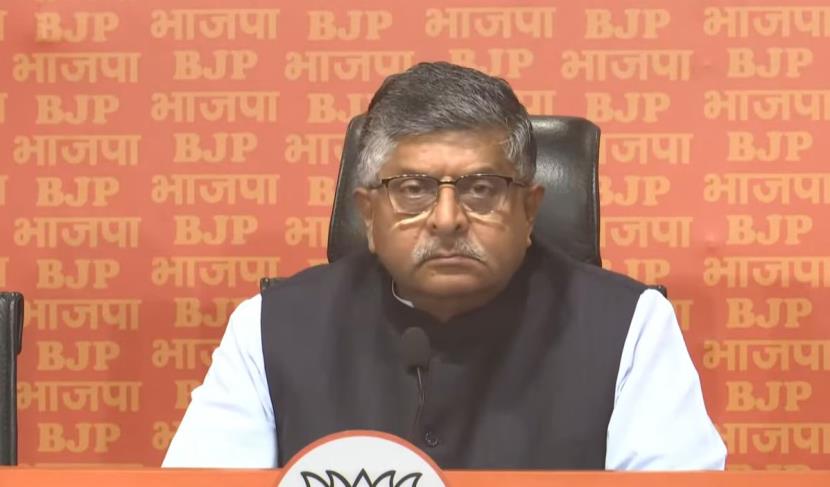BJP's Ravi Shankar Prasad backs letter by 600 lawyers to CJI against 'group trying to influence verdicts'

Mar 29, 2024
NEW DELHI: Taking a swipe at the Congress after more than 600 lawyers addressed a letter to Chief Justice of India (CJI) Justice Dhananjaya Y Chandrachud, expressing serious concerns against the actions of a specific interest group aiming to undermine the judiciary's integrity, Bharatiya Janata Party MP Ravi Shankar Prasad alleged that some people, including those who are close to the Congress establishment, have always taken a very grim view at times about the judiciary.
Prasad said that the Indian judiciary is an extraordinary institution and has got every right to decide any issue in the way it wants.
"...It is indeed saddening that some people, including those who are close to the Congress establishment, have always taken a very grim view at times about judiciary, depending upon what kind of judgments have come. These are the people who at one time talked of committed judiciary. These are people who at one time hailed the supersession of judges by the Congress government in the 1970s...Indian judiciary is an extraordinary institution. We are very proud of it," the BJP MP said.
He further said, "More than 600 lawyers, including eminent lawyers like Harish Salve have publicly written expressing their concern. Judiciary has got every right to decide any issue this way or that way. That is what India's Constitution has given them the power and to question that is grossly unfair."
Earlier, PM Modi also backed the concerns flagged by the senior lawyer and said that it was Congress culture to browbeat and bully.
"To browbeat and bully others is vintage Congress culture. 5 decades ago itself they had called for a "committed judiciary" they shamelessly want commitment from others for their selfish interests but desist from any commitment towards the nation. No wonder 140 crore Indians are rejecting them," PM Modi posted on X.
The letter has been signed by prominent lawyers including senior advocate Harish Salve, Manan Kumar Mishra, Adish Aggarwala, Chetan Mittal, Pinky Anand, Hitesh Jain, Ujjwala Pawar, Uday Holla and Swaroopama Chaturvedi, Bar Council of India's Chairman Manan Kumar Mishra, Supreme Court Bar Association President Adish Aggarwala, among others.
This group, according to the lawyers, is employing pressure tactics to influence judicial outcomes, particularly in cases involving political figures and corruption allegations. These actions, they argue, pose a significant threat to the democratic fabric and the trust placed in judicial processes.
The lawyers highlighted several concerning methods, including the propagation of false narratives about a 'golden era' of the judiciary, aimed at discrediting current proceedings and undermining public confidence in the courts.
The accusations include 'bench fixing', disrespectful comparisons of domestic courts to those in lawless regimes, and direct attacks on judges' honor.
The letter accused that the tactics employed by the interest group involve selective criticism or praise of court decisions based on their political agenda, described as a "My way or the highway" approach.
Concerns have also been raised about political flip-flopping, where politicians alternate between accusing individuals of corruption and defending them in court.
The letter further highlighted, the use of underhanded tactics and the dissemination of false information to influence judicial appointments and outcomes.
The lawyers note the strategic timing of these tactics around election periods, drawing parallels to similar activities in 2018-2019.
Senior members of the bar have requested the Supreme Court to take protective measures against these attacks to maintain the judiciary's integrity. The letter calls for a united stand in support of the judiciary to ensure it remains a strong pillar of democracy, urging decisive leadership in addressing these challenges.
The lawyers expressed concern over the methods used, including the propagation of false narratives about a so-called 'golden era' of the judiciary, aimed at discrediting current proceedings and undermining public confidence in the courts.